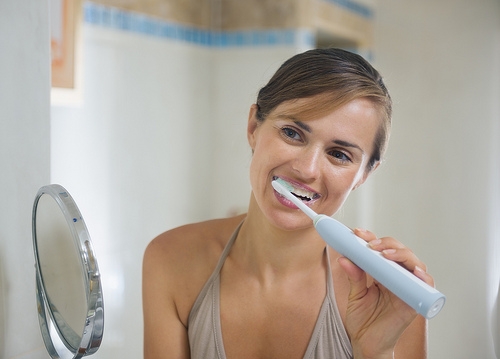What is a crown?
July 17th, 2024

Dr. Robert Farber, Dr. Corey Farber, Dr. Harry Morris, Dr. Henry Bryan, and Dr. Mark Isler and our team at Dearborn West Dental hear this question all the time. Millions of people have dental crowns that artificially restore the chewing surface of a tooth. Also known as caps, these restorations surround the entire portion of the tooth that is above the gum line. Crowns are custom fabricated to match the color, shape, and size of other teeth and are visually undetectable to others. Several types of materials can be used to create crowns, including stainless steel, resin, metal alloys, porcelain fused to metal, or ceramic. When properly cared for and accurately fit, crowns can stay in place for a decade or more.
There are many reasons to get a dental crown, including:
- To restore a broken or cracked tooth
- To protect a tooth after a root canal
- To restore a severely decayed tooth
- To help anchor a dental bridge
- To complete a dental implant
- To protect a tooth that is at high risk for developing decay
- For cosmetic purposes
Getting a dental crown
The process of getting a dental crown begins at our Dearborn office. X-rays are used to ensure the teeth are healthy enough to receive a crown. If the roots and surrounding bone are in satisfactory condition, the tooth will be numbed, filed, and reshaped in preparation for the crown. If the tooth root is not healthy, a root canal may be necessary first.
After the tooth is prepared, a special paste is placed over the upper and lower teeth to make impressions. These impressions serve as blueprints for the dental laboratory responsible for making the crown. They also help ensure the position of the new crown will not negatively affect a patient’s bite. The prepared tooth is protected by a temporary crown while the permanent one is made. When ready, the permanent crown replaces the temporary crown and is cemented in place.
To learn more about crowns, or to schedule an appointment with Dr. Robert Farber, Dr. Corey Farber, Dr. Harry Morris, Dr. Henry Bryan, and Dr. Mark Isler, please give us a call at our convenient Dearborn office!




 Website Powered by Sesame 24-7™
Website Powered by Sesame 24-7™